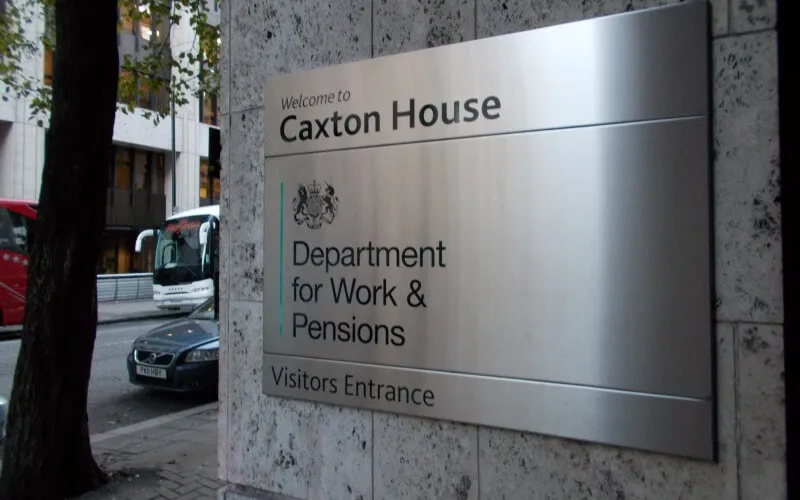Fewer than one third of the websites and other digital services run by the Department for Work and Pensions (DWP) is compliant with its legal duties on accessibility, according to an internal report obtained under the Freedom of Information Act.
A DWP report shared internally in February 2022 shows that 36 of the 141 “live” digital services run by DWP are currently said to be “very high risk”, with another 23 considered “high risk”.
These services include websites, mobile phone apps and software used by the department.
Of the 141 live services, 24 are set to be “decommissioned”, but of the remaining 117, just 36 (31 per cent) were found to be compliant with the regulations.
Of those used by benefit claimants and other members of the public, only 24 of 56 services (43 per cent) are considered by DWP to comply with the regulations.
The figures for digital services used by DWP staff are even worse, with just 12 of 61 digital services (20 per cent) said to be compliant with the Public Sector Bodies Accessibility Regulations 2018.
The regulations came into force in September 2018, more than three-and-a-half years ago.
They say that public bodies must make their websites and mobile apps “perceivable, operable, understandable and robust”.
It is not clear in what way DWP’s websites, apps and software are failing to meet the department’s legal obligations, as the department has so far only provided a brief summary of the reports Disability News Service (DNS) requested.
But Cabinet Office guidance says: “People may not have a choice when using a public sector website or mobile app, so it’s important they work for everyone.
“The people who need them the most are often the people who find them hardest to use.”
The guidance says common problems include websites that are not easy to use on a mobile phone or cannot be navigated using a keyboard, inaccessible PDF forms that cannot be read out by screen readers, and poor colour contrast that makes text difficult to read.
It also warns: “You may be breaking the law if your public sector website or mobile app does not meet accessibility requirements.”
And it adds: “All public sector websites and mobile apps should now be accessible.”
Last night, the Central Digital and Data Office – part of the Cabinet Office – which is responsible for monitoring how public bodies comply with the regulations on behalf of the Cabinet Office, refused to answer questions about DWP’s failings.
It refused to say if it was previously aware of how many DWP digital services were failing to meet the regulations, what action it had taken to ensure DWP met its legal obligations, and whether it was concerned about DWP’s performance.
The reports were sent to DNS by DWP in response to a freedom of information request.
In its response, DWP said: “DWP are prioritising our customer-facing digital services, alongside replacing our ageing IT systems which is allowing us to build accessible services by default, but we know there is more to do.
“Despite the effects of the pandemic, we have made significant progress in this area over the past 12 months.
“We are continuously working to improve our processes and services, including upskilling our workforce and establishing a culture that prioritises accessibility across the department.”
A note from the editor:
Please consider making a voluntary financial contribution to support the work of DNS and allow it to continue producing independent, carefully-researched news stories that focus on the lives and rights of disabled people and their user-led organisations.
Please do not contribute if you cannot afford to do so, and please note that DNS is not a charity. It is run and owned by disabled journalist John Pring and has been from its launch in April 2009.
Thank you for anything you can do to support the work of DNS…

 ‘Disastrous’ cuts bill that leaves legacy of distrust and distress ‘must be dropped’
‘Disastrous’ cuts bill that leaves legacy of distrust and distress ‘must be dropped’ Silence from MP sister of Rachel Reeves over suicide linked to PIP flaws, just as government was seeking cuts
Silence from MP sister of Rachel Reeves over suicide linked to PIP flaws, just as government was seeking cuts Disabled activists warn Labour MPs who vote for cuts: ‘The gloves will be off’
Disabled activists warn Labour MPs who vote for cuts: ‘The gloves will be off’